We knew we needed new outfits for the occasion, as we had each brought only trekking clothes with us. Mac's fabric came from a “local” shop, as in, locals shop there, not tourists, and we were on line behind a man and his two little sons, maybe five and seven years old. The boys were filthy, and their clothes were in tatters. Nearly all the buttons were missing from their blue button-down shirts, and there were all kinds of stains and holes and frays on their khaki pants. They watched us curiously as the fabric man measured them for dark blue gingham shirts and matching blue pants, cut the fabric and sent them on their way. I decided the poor boys must not have a mom, because if they did, she would have at least sewn their shirts closed or washed their cute little faces. Mac chose a woven red cotton for his pants and a soft, rich, off-white cotton for his shirt.
Saris often come as one long piece of material. You buy the material and then bring it to a tailor to cut and sew and pleat and such. I had to get mine from a shop on the mall, full of Indian tourists. It took a while to explain that I didn't want silk or wool, though they were beautiful, and I would prefer cotton. I didn't even try to explain my reason, which is that I don't want to wear animal products. (They actually boil the silk worms to extract the silk, and we all know where wool comes from.) I found something called “crepe cotton” which is kind of silky and thin, but made from plants, in a beautiful purple and turquoise pattern.
Finding tailors and getting our outfits made took most of a day. Mac's tailoring experience was fairly painless. Mine, well, it was a bit of a fiasco that spanned two towns and almost had me wearing the next-best thing (which was dirt-colored and very far from “best”).
The bus from Manali was the nicest I've been on so far in India, like a coach bus back home, but with no bathroom and a huge cockpit for the driver and his posse, complete with shrines and flashing lights. The music was blaring as we got on, and didn't let up for several hours, as we wound up and down and back and forth, seemingly off-roading for the smoothness of the ride. (But when I looked out the window, I saw something resembling a road beneath us. Most of the time. Often I saw the bus whipping 'round hair-pin turns over the edge of a cliff, and was sure that we weren't going to make it, but that's normal here.) There were many stops. We stopped in the middle of the road near a roadside shrine so the driver could pray as his friend wailed on the bell. We stopped for gas a few times. We stopped for dinner and then again for tea around 1:30 am. We stopped at some kind of police checkpoint, and when the Israeli girls had to pee. I think without the stops we could have made it in five hours instead of nine and a half.
We arrived in McLeodganj at around 5 am, the light of the day just beginning to penetrate the cool haze that had settled in overnight. We marched, loaded with bags and packs, through the small square (which was emptier than I've ever seen it) back home – or as close to home as we could get in India. We had spent over six weeks in Mcleod, at our little Yogi Cottage, and coming back to it felt familiar and cozy in a place that is so incredibly foreign.
I knocked on Khushi's door, and heard him call out in a hoarse, sleepy voice. I called back, and after some fumbling, he came out. I had wandered a few feet away to look over the balcony railing at the sun coming up over the mountains, and when the door opened, I turned, with a huge smile on my face, and said, “Khushi! We came for your big day! Are you excited?”
He didn't look excited. Khushi means “happiness,” and he usually is a bundle of laughter and smiles, but not that morning. (His name was actually the word for love when he was little, but he was such a happy child that his father changed his name when he was a boy.) He walked over to me, feet dragging, and gave me the saddest hug – his one arm slung over my shoulder, his head pathetically plopped on my other shoulder, his other arm barely finding the energy or will to make it to my back. I asked him what was wrong, and he said he'd tell me all about it later, that we might not be going to Seema's family at all. He gave me our keys and went back to his room, looking so sad, leaving me to wonder what had happened. A few hours later, he knocked on our door, ready to talk. Seema's parents had canceled the meeting a few days ago, saying that they didn't want to even consider the match. Seema cried for three days (she is at university in Shimla, twelve hours away, getting her Masters in Sitar). The family then rescheduled, canceled and rescheduled again. Yogi and Khushi had gone the day before with some other friends to talk with Seema's family, but it wasn't looking good. Seema's father is a poor farmer outside of Dharamsala, and he worries that she won't be accepted in the tourist-filled big city and that Khushi, struggling (though extremely talented) musician that he is, won't be able to give her stability. (Seema's father is poor but not so poor. He said that his papaya crop this year was so delicious that he ate them instead of selling them. ALL of them.)
Khushi called the family again, and told them that his friends from America had come to talk to them. They agreed, then called back a few minutes later to reschedule, pushing the meeting to 4:00 pm. Dia, Charlie and I all went out to get our clothes cleaned, pressed or tailored, and by four we were all gussied up and ready to go. There was some dispute as to how the sari is to be worn (Khushi had me pretty worried that I was going to look like a total idiot), but in the end Khushi was happy and told me I looked like Sonia Gandhi. So we were off, shoving too many bodies in a little taxi with Kaka the driver. Kaka turned out to be mildly homocidal. He got into an accident in the first ten minutes of the trip, and left the car on the blind-side of a hair-pin turn with all of us inside it while he ran after the other driver like a madman. Somehow we were not hit by any of the cars coming down the hill, and a few minutes later Kaka was back with a license plate number and ready to go. We continued on, missing pedestrians and monkeys and cows and other cars and one bus by mere inches. When Kaka got on his phone, Dia told him that he better get off. (He hung up immediately. Dia has a way of communicating both her seriousness and her readiness to reign down consequences with just the briefest look.) We stopped and got sweets – three kilos of sugary desserts, that's more than six and a half pounds – and an approving smile for my sari from the woman in the sweets shop (unsolicited, so it was very reassuring), and soon we were in the country. (That's Kaka. He doesn't look nuts...)
On the way home, Khushi was back to his old self, laughing and joking and calling Seema to tell her the news. Kaka was still strange, lighting incense as he sped through windy, unlit back roads, the flame nearly igniting the fake flowers hanging from his rear-view mirror, then praying instead of watching the road. When we got home, Khushi insisted on making chai for everyone to celebrate. It was almost 9:00, close to bedtime. We convinced him to make chamomile instead, and sipped our tea as we looked out over the lights down the mountainside and throughout the valley before we all went to bed, exhausted, happy and relieved that the evening had gone so well.
When we left a few days later, Khushi was still waiting to hear, but felt good about it. A few months later Seema's parents agreed, but the wedding is still a few years off - they are waiting until Seema graduates. :)
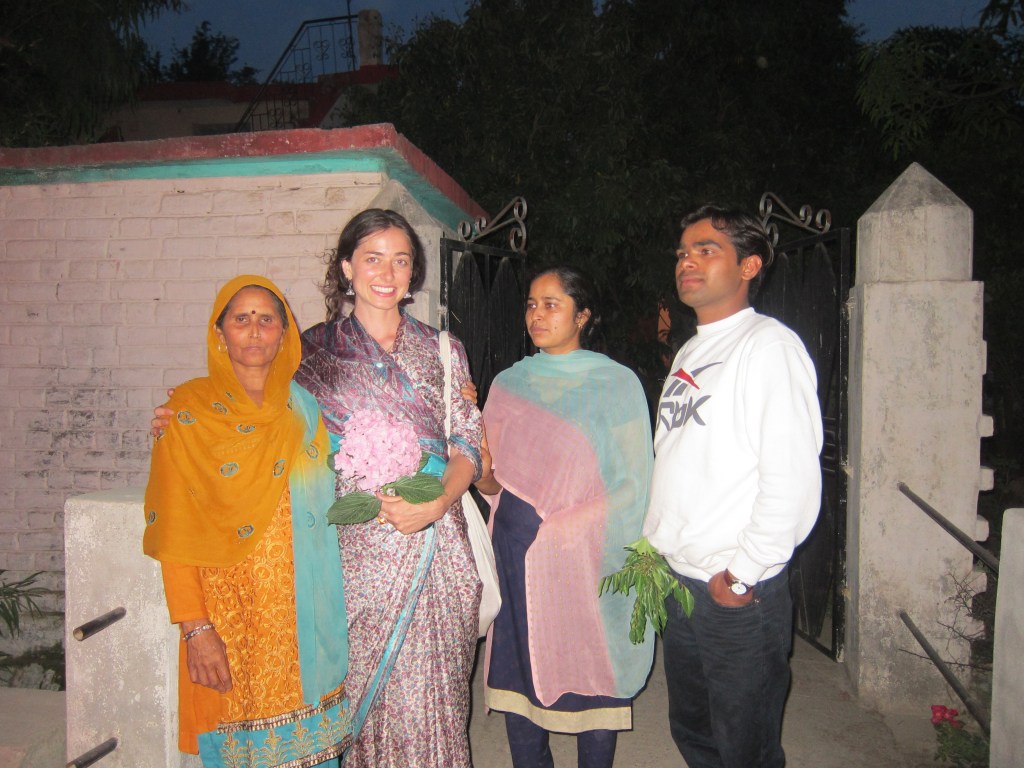
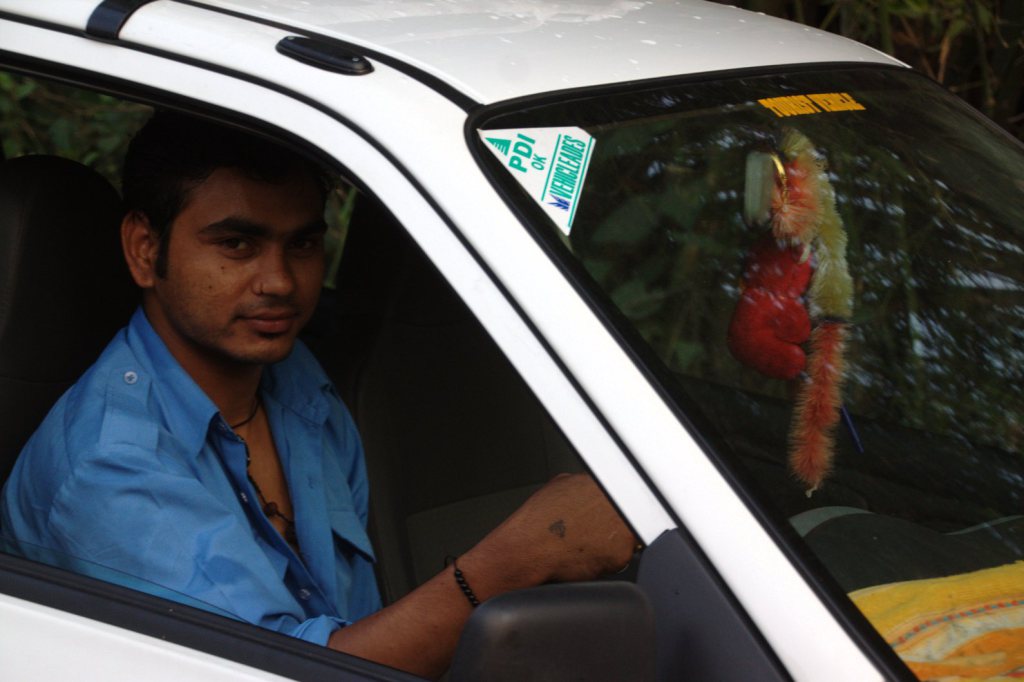
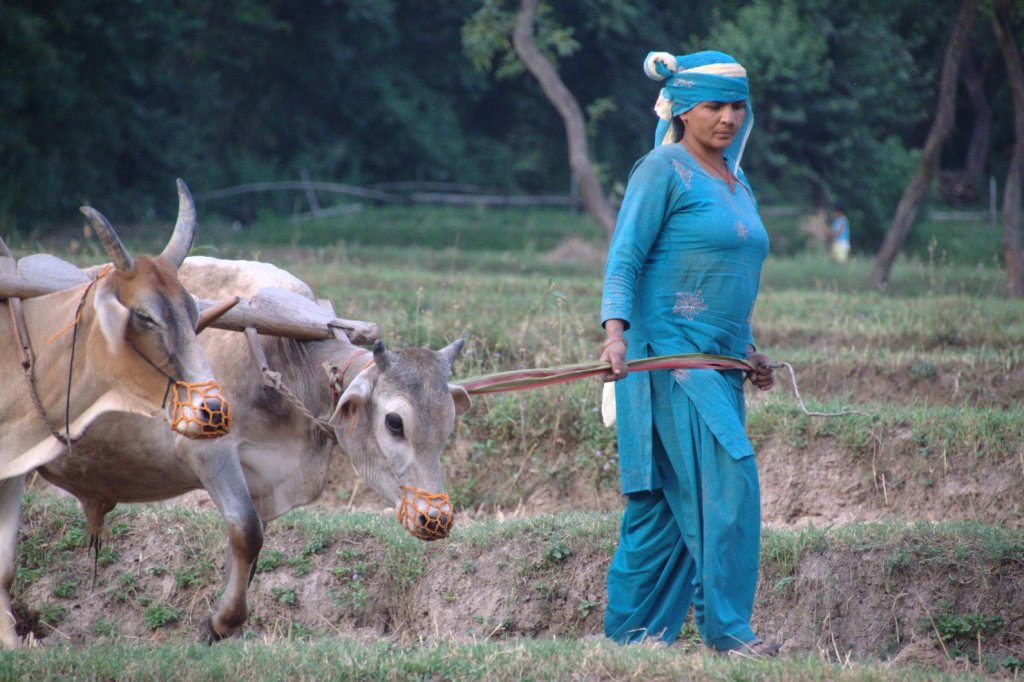
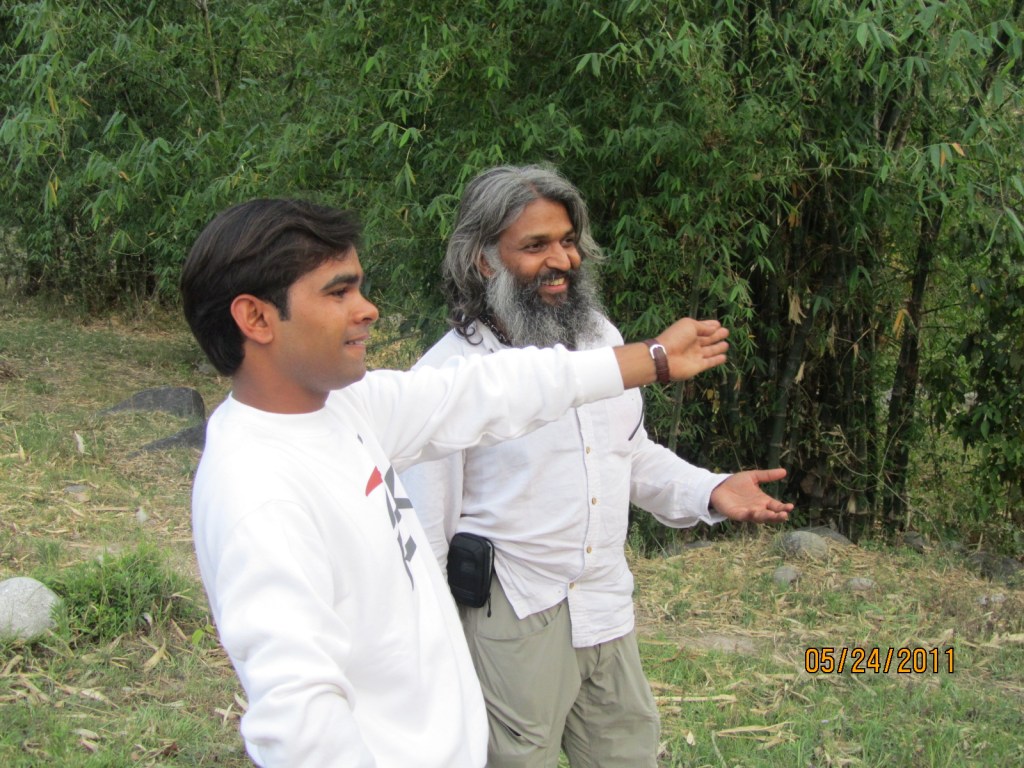
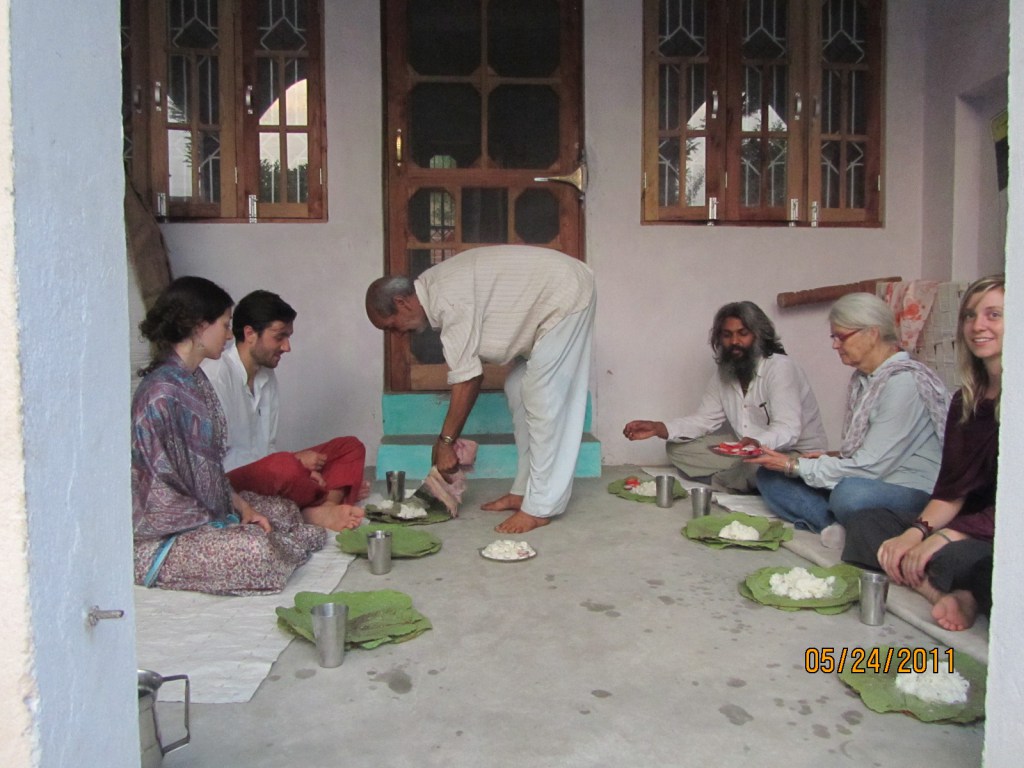
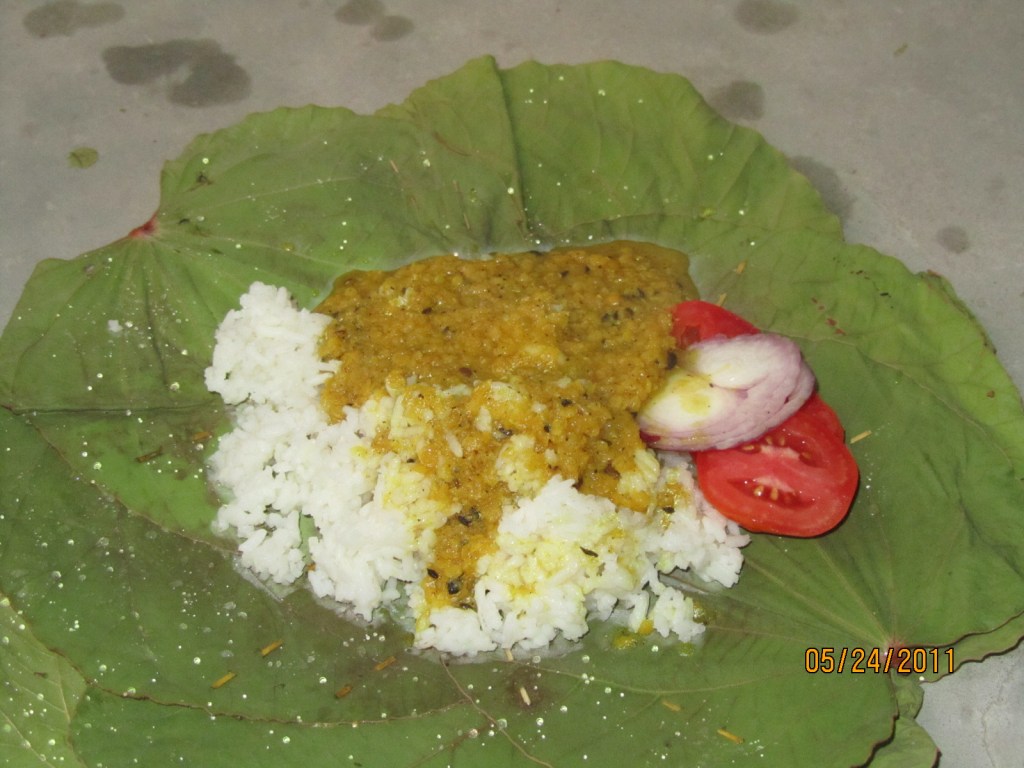
 RSS Feed
RSS Feed
